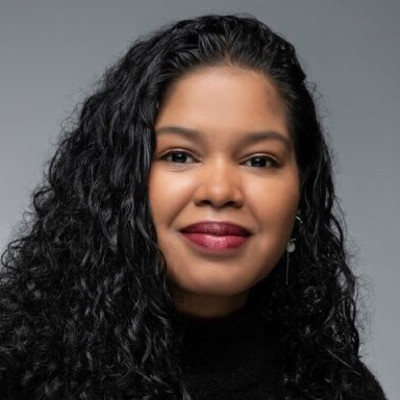Social Entrepreneurship at Heller
November 3, 2022
Andy Mendez, MBA/SID '23
 Even if you are not in the Social Impact MBA program, Heller students can benefit from participation in social entrepreneurship initiatives both at the Heller School and the wider Brandeis community. Social entrepreneurship events are a great form of experiential learning. They offer the chance to network outside of your cohort and provide a real-world forum for applying course concepts. I’d like to highlight the social entrepreneurship opportunities I’ve enjoyed the most.
Even if you are not in the Social Impact MBA program, Heller students can benefit from participation in social entrepreneurship initiatives both at the Heller School and the wider Brandeis community. Social entrepreneurship events are a great form of experiential learning. They offer the chance to network outside of your cohort and provide a real-world forum for applying course concepts. I’d like to highlight the social entrepreneurship opportunities I’ve enjoyed the most.
The Heller Social Impact Startup Challenge
This is an annual event in the fall semester planned almost entirely by current students. This three-day event brings together Heller students from all programs to form teams, develop their ideas with the help of mentors, and present their business concepts before a panel of judges – many of whom are Boston-area entrepreneurs. I joined this competition in my first semester, which allowed me to apply the concepts I was learning from Financial Accounting, as well as Leadership & Organizational Development. I was still very new to the Heller community, so this event also gave me the chance to meet new people and form connections. I originally came to Heller just for the MA in Sustainable International Development program but was encouraged by alumni to add the MBA. After completing the Startup Challenge, I knew I had made the right decision.
SPARK
The SPARK program is run by Brandeis Innovation. In the fall, SPARK accepts applications for its pitch competition, known as SPARKTank. First prize and People’s Choice Award winners in the Heller Startup Challenge receive streamlined entrance into the competition. The SPARK competition differs from the Heller Startup Challenge in that it is open to Brandeis faculty, staff, and students. Judges have innovation as a top criteria. The pitch time is much shorter than the Heller Startup Challenge, so my team really had to challenge ourselves to be focused, specific, and deliberate about how we communicated our idea. Winning teams from SPARK automatically join the SPARK startup incubator. The incubator happens over spring semester. Teams meet weekly for workshops that help them hone in on topics like competitive advantage, customer discovery, and revenue generation. My favorite thing about SPARK was the cohort aspect. Our cohort included teams from the International Business School, a professor in the Asian Studies Department, as well as first and second year Heller MBA students. I learned so much from being able to hear what other teams were working on and what challenges they were working through.
Courses in Social Entrepreneurship
In addition to events, Heller students can also engage in social entrepreneurship through coursework. Students have the option of two courses – Global Social Entrepreneurship and Social Entrepreneurship & Innovation – both taught by the MBA Program Director, Carole Carlson. Professor Carlson has recently authored an entire textbook with case studies on mission-driven ventures. In the spring semester, she teaches the half-semester course on Global Social Entrepreneurship, which highlights examples of social impact businesses around the globe. I really appreciated how the class encouraged us to be skeptical and question if everything that is labeled a social venture is in fact truly mission-driven. The course also emphasizes that just because a social impact is taking place, mission-driven ventures still must have robust revenue models and solid business plans to be viable. In this class, I was introduced to essential business tools for lean startups, including the Business Model Canvas and the theory of change. In this course, students actually form teams, develop a business idea, and present on their business idea as their final project. My team presented on the idea of an eco-grocery store in Bhutan that would reduce waste and create jobs for urban youth. The fall semester course, Social Entrepreneurship & Innovation, dives even deeper into these concepts and presents students with more domestic case studies. Other topics covered include competitive advantage, scaling, and financing social ventures.
If you are even the slightest bit curious or interested in entrepreneurship, I encourage you to dip your toes in and take advantage of these opportunities!
